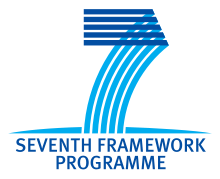f- National Institutes of Health
The NIH, part of the U.S. Department of Health and Human Services, is the U.S.’s medical research agency—making important discoveries that improve health and save lives. It is the primary U.S. Federal agency for conducting and supporting medical research. The NIH mission is to seek fundamental knowledge about the nature and behaviour of living systems and the application of that knowledge to enhance health, lengthen life, and reduce the burdens of illness and disability.
Programe
NIH Small Grant Program (RO3)
Programe Description
The R03 grant mechanism supports small research projects that can be carried out in a short period of time with limited resources. The common characteristic of the small grant is the provision of limited funding for a short period of time.
Area of Funding
Please see the NIH funding website for the specific areas that are funded (the R03 Participating Institutes and Centres are listed at the bottom of the page): http://grants.nih.gov/grants/funding/r03.htm
Scheme
National research and/or Innovation Funding Programme available to European citizens
Type of Funding
Research Grant
Budget
The overall budget amount devoted to intramural and extramural R&D programs for the NIH for FY 2012 is $30.107 billion13. The R03 supports a budget for direct costs of up to two $25,000 modules or $50,000 per year. In 2011, the R03 funded 1,184 awards totaling over $95.43 million. Source: AAAS R&D Budget and Policy Program: R&D in the FY 2012 Budget. http://www.aaas.org/spp/rd/fy2012/
Duration of Funding
The R03 mechanism supports a project period of up to two year. An R03 cannot be renewed.
Funding Conditions
The NIH has standardized the Small Grant (R03) application characteristics, requirements, preparation, and review procedures in order to accommodate investigator-initiated (unsolicited) applications.
The R03 Parent Funding Opportunity Announcement (FOA) for investigator-initiated R03 applications can be found at PA-11-262 (http://grants.nih.gov/grants/guide/pa-files/PA-11-262.html) and articulates the policies and procedures that apply to this grant mechanism.
The R01 FOA describes the use of the investigator-initiated R03 and describes the NIH Institutes and Centres (ICs) that intend to accept such applications.
All investigators should consult the list of participating ICs (shown below) as well as the IC staff listed as contacts
(http://grants.nih.gov/grants/guide/contacts/parent_R03.html) to determine if an R03 application is appropriate. Investigators are strongly encouraged to consult with the appropriate NIH program administrator about their proposed research project during the concept development stage of the application.
A registration process is necessary before submission and applicants are highly encouraged to start the process at least four (4) weeks prior to the grant submission date. Therefore, applicants should immediately check with their business official to determine whether their organization/institution is already registered in both Grants.gov and the NIH eraCommons (http://era.nih.gov/commons/faq_commons.cfm). The NIH will accept electronic applications only from organizations that have completed all necessary registrations.
Please read the following PDF document (extracted from printed catalogue) to obtain other useful information about DHS and eligibility language before applying:
http://www.euussciencetechnology.eu/uploads/docs/NIH%20extracted%20pages.pdf
Application Notes
Non-domestic (non-U.S.) Entities (Foreign Institutions) are eligible to apply.
Non-domestic (non-U.S.) components of U.S. Organizations are eligible to apply.
Foreign components, as defined in the NIH Grants Policy Statement, are allowed.
See More
Contact
For more information: http://grants.nih.gov/grants/funding/r03.htm
PA-11-262: http://grants.nih.gov/grants/guide/pa-files/PA-11-262.html
Foreign Grants Information
Download Content
Back





